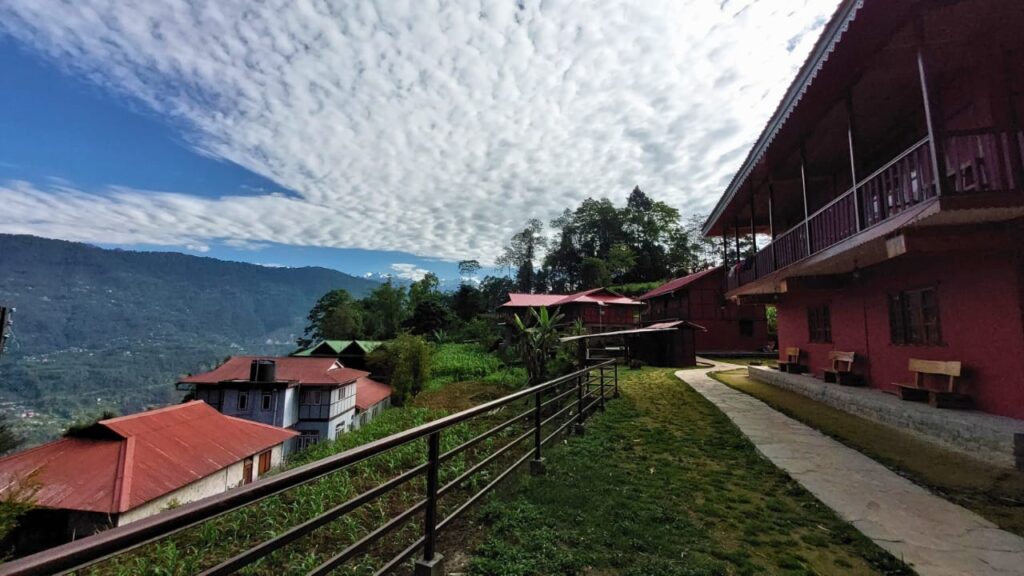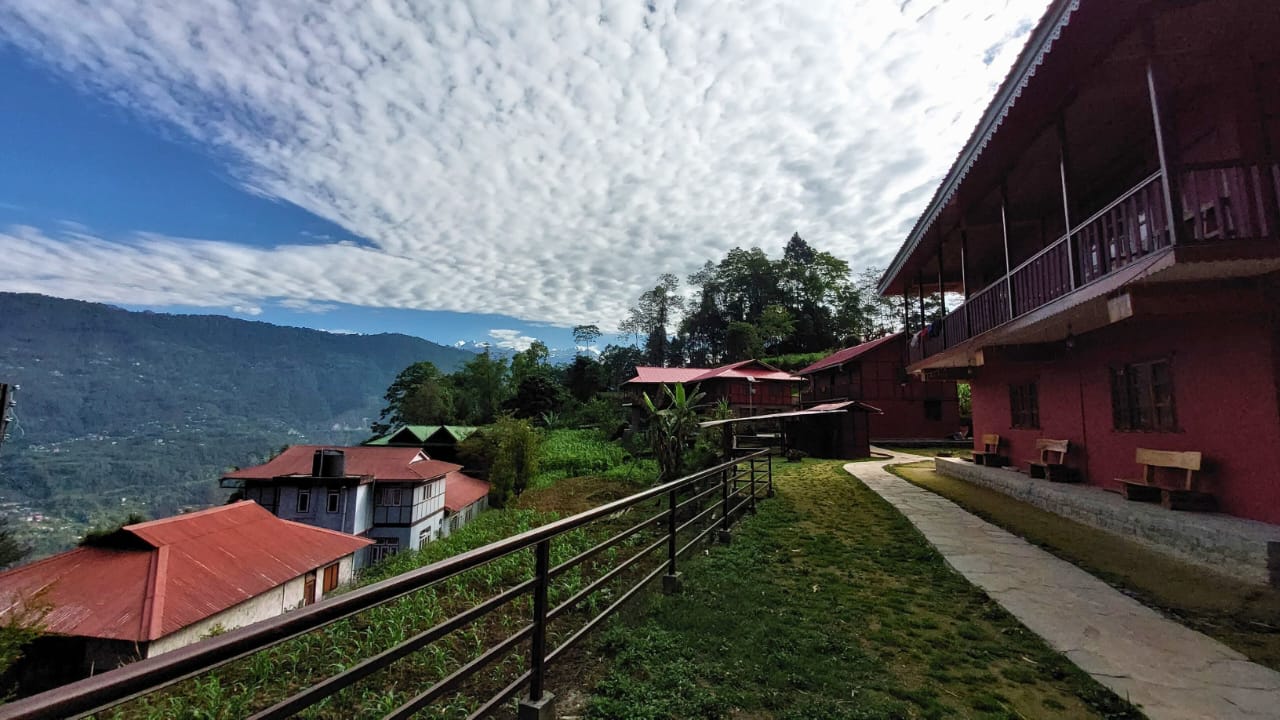If you are from the city, and are planning a trip to the Himalayas, your accommodation budget may increases by up to 30% vis-a-vis city hotels. Meaning, if you can get a standard AC room for ₹ 2500 at a city hotel, you will get a similar standard room in the hill stations at the same price but without air conditioning. Considering AC is not required in the hills, it is comparatively more pricey. In the winter, heaters will be provided at extra charges. In some hotels, water usage comes with a limit usage notice, power cuts may incur inverter charges; unscrupulous as it may seem, that is the only way to control the overhead cost for running hotels in the mountains. Therefore, small things like this may be incomprehensible to city dwellers taking trips to the mountains. Additionally, presumptions derived from the accommodation category and quality based on city properties may differ significantly in the Himalayan destinations, which can sometimes be extremely frustrating to comprehend. I have seen this happen often to tourists who have booked “standard” tourist hotels and are given explanations like, “Sir, this is the standard room you have booked. We can upgrade you to deluxe room which is chargeable extra”. The starred hotels and premium accommodations have less of such issues.
In this article, I will try to break it down in an easy way on how to choose and budget your accommodation while touring the Himalayas. This advice is applicable for stays between Ladakh and Arunachal Pradesh, as well as for destinations such as Himachal Pradesh, Nepal, Sikkim, and Bhutan.

1. Good deals on the internet don’t always mean good deals in reality
I usually take online deals when travelling solo, as it helps me budget my travel, and I am not fussy about an overnight stay. If you are also travelling solo, take the best deals happily. However, if you are traveling with partners, family, friends, or organizing stays for your guests, be wary about deals on the internet. If you take multiple rooms, then a headache during check-in is assured, and a verbal battle of justifications will ensue for hours!
Unlike the cities, where there are incessant footfalls of customers, and check-ins and check-outs happening throughout the day, in the mountainous hill stations, it is almost always overnight stays. Therefore, the internet deal prices do not always function when you check into the property, and most often than not, require supplement charges in such scenarios. If you have prepaid for the room, and the room is not up to your expectations, believe me, the hotel will have a thousand and one explanations, and you will ultimately give in.
Instead, call or email the property and discuss the deals and details of the rooms thoroughly so that both of you are at the same level of understanding.
2. Always reconfirm your accommodation
Whether you are booking through a travel agency or by yourself, make extra sure to reconfirm your booking during high season. It is better to bug the hotel receptionist and be assured of your booked rooms in advance than to get yourself into an unpleasant surprise of having your rooms suspiciously released on your arrival. This mostly happens during high seasons and on late arrivals. In the cities, this wouldn’t be much of an issue, as there are plenty of hotels, almost always in the neighborhood. However, in the hill stations and mountains, finding a similar category of alternative hotels mostly costs double, plus the trouble. Therefore, take a deep breath and give that annoying call to the receptionist to reconfirm before arrival at the property.
3. Photos and reviews tend to be deceptive
Beautiful room, beautiful views, wonderful reviews, but your experience wasn’t. This is not uncommon. The idea of beautiful, wonderful, and such superlatives is varied. What one individual finds good may not be good enough for another. The overload of information does not help to decide. I select the hotels based on these four preconditions: a) Type of property, b) Location, c) Neighbourhood , d) Price
a) Type of property: This is the first condition I consider when I am selecting accommodations for my guests. What are they looking for? A resort, a star hotel, a premium boutique property, or a homestay? This helps me to be clear on the choices.
b) Location: Once the type of property is decided, the next step is to find the best location where such property exists. This wouldn’t be a big issue in the cities as the approach to the hotels is well connected for pick up, drop off, and sightseeing activities. However, in the hills, this becomes an important factor for the above-mentioned activities. It is not unusual to have a great property in a not-so-great location requiring extended time travel, congested roads with one-way streets, and so on. I select hotels based on locations that are easy to walk to important points like markets, and require less vehicle travel time once checked into the property.
c) Neighbourhood: While location is based on the proximity to do activities and requiring less vehicle travel time, neighbourhood is crucial for these experiences. In the hill stations, it is normal to have a great hotel in congested residential areas or near noisy markets, taxi stands, and so on. This adds some amount of disappointment for the tourists visiting the hills for the first time. I prefer to look for accommodations in semi-urban parts of the hills, with greenery as one of the exterior priorities. I avoid railway stations, taxi stands, and congested residential areas.
Selecting neighbourhood also depends on the number of days one plans to spend in the visiting destination. If the stay is for a longer period, then proximity to activity centers does not matter. In such cases, I prefer to recommend out-of-town/city accommodations.
d) Price: Finally, the price becomes the sealing factor. This is also a field where one must be extremely observant. There are instances when a premium property has an exorbitant tariff because there is no other competition in its category. Or a simple property in a good location that rightfully demands a premium price. Meaning, considerably more price than it is worth for the type of rooms but justified by its location, neighbourhood, good views, and services. Knowing the difference helps you to get a fair price for the choice you make.
4. Rooms & room service
Ultimately, the satisfaction quotient is measured in the quality of sleep in the booked room. All of the above makes no sense if the sleep quality is underscored. This comes down to the type of rooms, quality of beds, mattresses, pillows, quilts, the bedsheets, the toiletries, and so on. In the cities, the rooms are easier and quicker to maintain for the housekeeping staff than in the hill stations. I presume it is because of the certain tempo that life in the city brings to your daily chores. Everything moves at twice the speed of the things that move at hill stations! In the hill stations and mountains, the workforce in the hospitality sector goes through an extended period of off-seasons, thereby slowing everything down and gradually picking up speed during the high season. Ironically, when they are at their best, it is already the end of the high season. And the cycle continues. So, the point is, please understand that services may be slow and there will always be shortcomings now and then. Sometimes you may get the best, and sometimes so-so. If it is a locally run hotel, you will be assured of rectification with a smile and a thousand apologies!
I hope these insights will help you plan your holiday stays in the hills like an expert!




